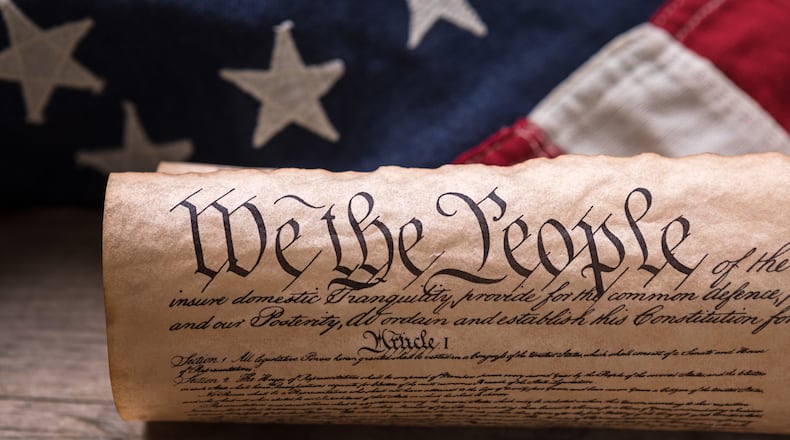Haley Barbour is immediate past chair and Beverly Perdue is current chair of the National Assessment Governing Board, which sets policies for the “Nation’s Report Card.” Barbour served as Mississippi governor from 2004-2012, and Perdue served as North Carolina governor from 2009-2013.
In a guest column, Barbour and Perdue discuss the performance of the nation’s eighth graders on newly released federal tests that measured their grasp of U.S. history and civics.
By Haley Barbour and Beverly Perdue
The latest Nation’s Report Card should be viewed as a dire warning: U.S. students don’t know nearly enough about history and civics to be strong participants in American democracy.
A mere 13% — no, that’s not a typo — of eighth graders scored at the proficient level in U.S. history on the 2022 National Assessment of Educational Progress, also known as the Nation’s Report Card. Only 22% hit the mark in civics.
Credit: Contributed
Credit: Contributed
We’re deeply distressed. These abysmal results, down from 2018, represent a grave threat to our country and the readiness of today’s youth to enter college, the workforce, and engage in civic life. Kids who aren’t working at the proficient level on the Nation’s Report Card can’t evaluate arguments on opposing sides of important moments in history and can’t correctly answer questions about the U.S. Constitution.
A core function of education is to provide students with the knowledge and skills they need to be active and engaged citizens. We didn’t become the greatest country in the world by accident. When we were kids, and when we were raising our own families, schools took these subjects, part of an overall social studies curriculum, seriously. We need to get back to that, rigorously teaching the story of our founding and the principles on which our democracy is built and helping students draw lessons from difficult periods in our past.
Credit: Contributed
Credit: Contributed
A bipartisan group of former U.S. secretaries of education wrote an op-ed two years ago calling for the reestablishment of civics and history as essential components of education in America. Unfortunately, as these scores show, not enough has happened since then.
A recent survey of educators found they aren’t getting the support they need when it comes to teaching social studies with quality instructional resources, robust professional development, and clear expectations. We’re glad that our states recently adopted updated social studies standards designed to teach civics and the full history of our nation.
With time and resources, teachers can help turn around these awful scores. We’ve been reflecting on educators who helped shape our knowledge of history and civic identities. Bev had a history professor at the University of Kentucky who fundamentally helped her see the importance of studying the past and connecting it to the present. Haley had a history teacher at Yazoo High School who inspired students to engage in a deep study of the Civil War in which they studied battles, read books from multiple perspectives, kept journals, and visited historic sites. Kids need that kind of engagement in school today, three years after the pandemic wreaked havoc on our education system and amid continued signs young people are struggling in school and beyond.
Educators also can weave history and civics content into other classes. For example, in an English class, educators can ask students to read and write about key moments in history and civic life. That won’t undercut literacy instruction. Research shows systematically building background knowledge on important topics improves reading comprehension. You can also connect history and civics with the arts. We’ve both heard our grandkids belt out songs about the Battle of Yorktown and the Federalist Papers from “Hamilton.” And in science, students can study the great discoveries of the past while conducting their own experiments.
However we decide to approach this crisis, we must do it quickly and with the urgency it deserves. The eighth graders who took these tests are now completing their freshman year of high school. In just a few short years, they’ll be entering college or the workforce. Students’ lack of knowledge will certainly impact the opportunities available to them and their success in the world.
Our colleague on the National Assessment Governing Board, Eric Hanushek, conducted research last fall looking at the staggering economic losses associated with declining math scores released in October. We have no doubt these new civics and history scores will also have a harmful effect, financially and otherwise, on young people and the communities in which they live.
These are undoubtedly divided times, and that may have some influence on these low scores. After all, schools are a reflection of the larger society in which we live. The two of us belong to opposing political parties, and we know compromise takes hard work and is often difficult. But, on this issue, everyone should agree we need to act collectively — and act now — for the sake of our kids and our country.
About the Author
The Latest
Featured





